
FAST FACTS
Mastitis can be caused by the bacteria Staphylococcus aureus, which is very difficult to eliminate from a herd.
Subclinical mastitis is responsible for more than 80% of mastitis losses, says Prof IngeMarié Petzer.
Good management is vital in the prevention and control of mastitis.
Staphylococcus aureus (staph) is one of the most difficult mastitis-causing bacteria to eliminate from a dairy herd. Not only is it one of the most damaging and costly diseases of dairy cows, but it’s also very contagious. For every clinical case of mastitis that’s visible to the naked eye, there can be 20 more cases of subclinical mastitis that can only be identified in a laboratory.
“Subclinical mastitis is responsible for more than 80% of mastitis losses. This is why most farmers vastly underestimate economic losses due to mastitis,” says Onderstepoort udder health expert Prof Inge-Marié Petzer.
A cow with intramammary infection with staph can infect up to seven other cows that are milked with the same unit if the unit is not disinfected in-between the cows. It can be devastating to a farmer, with reported losses of 45% per quarter and 15% per infected cow.
However, staph can be controlled and eradicated from a herd through effective farm management, says Inge-Marié. “Farmers need to take a proactive approach if they want to overcome staph outbreaks. This includes the early detection of bacteria, achieving optimal parlour management and hygiene, and critically analysing every point within the dairy process,” Ingé-Marie advises.
This story is from the August 27, 2021 edition of Farmer's Weekly.
Start your 7-day Magzter GOLD free trial to access thousands of curated premium stories, and 8,500+ magazines and newspapers.
Already a subscriber ? Sign In
This story is from the August 27, 2021 edition of Farmer's Weekly.
Start your 7-day Magzter GOLD free trial to access thousands of curated premium stories, and 8,500+ magazines and newspapers.
Already a subscriber? Sign In
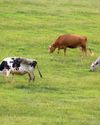
Africa goes from net carbon sink to source
New research shows Africa's impact on greenhouse gases and the need to focus on climate-smart agriculture
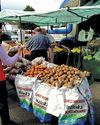
Ireland potato farmers unable to complete planting
Irish potato farmers have reported a delay in harvest and said that the UK might have to prepare for shortages of the produce. The shortfall is due to extreme wet weather during their planting season.
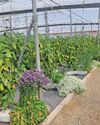
Zero-residue fresh produce a reality
Retail giants are calling for caution when using biologicals and chemical pesticides,

Big boost for mohair producers in Eastern Cape
A collaboration between the Eastern Cape Development Corporation (ECDC) and the Mohair Empowerment Trust (MET) has resulted in a R1,4 million injection into four emerging Angora goat farming operations in the Eastern Cape.
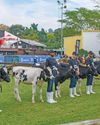
KZN Youth Show at Roval Agricultural Exhibition
The KZN Youth Show will run from Friday, 24 May to Sunday, 26 May at the Royal Showgrounds in Pietermaritzburg.
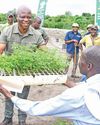
Hemp permits and irrigation system handed over
In an effort to fast-track the entry of rural farmers into the cannabis and hemp industries, KwaZuluNatal Minister for Agriculture and Rural Development, Super Zuma, visited the Shukasibheme Project in Mbazwana, a co-operative in Mseleni, uMhlabuyalingana in the Umkhanyakude District, to hand over cannabis and hemp permits as well as a borehole and irrigation system.

Meet some of the heroes behind avitourism destinations
Exploring what the Garden Route offers birdwatchers, Brian Berkman discovers some special people who run hospitable places to meet and see a variety of species.
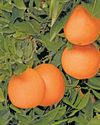
What the Citrus Academy offers aspiring producers
Cobus du Plessis takes a look at the Citrus Growers' Association of Southern Africa's Citrus Academy and how it is helping to develop aspiring farmers in the sector.
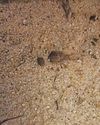
Natural-born killers of the insect world
The Myrmeleontidae family of lacewings from the Neuroptera order of insects consists of about 2 000 species of which 125 are found in South Africa.
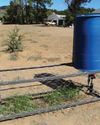
Seeder kick-starts vegetation in challenging environments
Dr George Craven of Noorspoort, Steytlerville, in the south-eastern Karoo, is successfully using a home-built 'bedstead seeder' to re-establish veld plants in an arid area, writes Roelof Bezuidenhout.